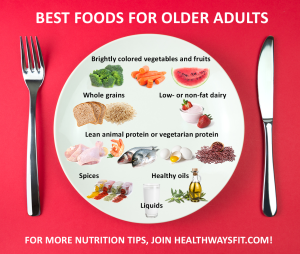Proper nutrition plays a vital role in the growth and development of infants and toddlers. During their early years, these little ones experience rapid cognitive, physical, and emotional growth, making it crucial to provide them with the necessary nutrients for optimal development. This article explores the essential aspects of nutrition for infants and toddlers:
1. Nutrient Requirements
Infants and toddlers have unique nutrient requirements due to their rapid growth rate and high energy needs. Their diets should provide a balance of macronutrients (carbohydrates, fats, and proteins) and micronutrients (vitamins and minerals) to support overall health. Breast milk or formula is typically the primary source of nutrition during the first six months, as it contains all the necessary nutrients for proper growth and development.
After six months, complementary foods are gradually introduced, alongside continued breastfeeding or formula feeding. These complementary foods should include a variety of foods that provide adequate amounts of iron, zinc, calcium, Vitamin D, and other essential nutrients. It’s important to consult a healthcare professional to ensure the proper nutrient intake for infants and toddlers.
2. Cognitive Development
Nutrition has a direct impact on cognitive development during the early years. Adequate intake of certain nutrients, such as omega-3 fatty acids, iron, zinc, and B vitamins, are crucial for brain development and functioning. These nutrients support the formation of neural connections, enhance memory and learning abilities, and contribute to overall cognitive performance.
Iron plays a particularly vital role in cognitive development, as it is involved in the production of neurotransmitters that affect brain function. Iron deficiency in infancy and early childhood can lead to cognitive impairments and delays in intellectual development. Including iron-rich foods, such as lean meats, legumes, and fortified cereals, in the diet of infants and toddlers is essential to prevent deficiencies.
3. Physical Growth
Nutrition is fundamental for physical growth and development in infants and toddlers. A balanced diet that includes protein, healthy fats, and carbohydrates is necessary for the formation of muscles, bones, and other body tissues. Adequate protein intake is especially important, as it supports proper muscle development and repair.
Furthermore, certain vitamins and minerals, like calcium and Vitamin D, play a crucial role in bone development and strength. Sufficient intake of these nutrients during infancy and early childhood helps prevent conditions like rickets and ensures the formation of healthy teeth.
4. Immune System Function
Having a well-functioning immune system is vital for infants and toddlers, as their developing bodies are more susceptible to infections and illnesses. Proper nutrition significantly impacts the strength and effectiveness of the immune system. Consuming a variety of fruits, vegetables, whole grains, and lean proteins provides the necessary vitamins, minerals, and antioxidants that strengthen the immune system.
Especially important are Vitamin C, which aids in the production of white blood cells, and Vitamin A, which helps maintain the integrity of the skin and mucosal linings. Breast milk, being rich in antibodies and immune-boosting compounds, also enhances the infant’s immune system and protects against infections.
5. Establishing Healthy Habits
The early years of life set the stage for lifelong habits, including eating habits. Introducing a wide range of fruits, vegetables, and whole grains at an early age exposes infants and toddlers to different flavors and textures, making them more likely to accept and enjoy a variety of foods later in life.
Additionally, establishing a regular eating routine and promoting a positive mealtime environment helps develop healthy eating habits. Serving as role models, parents and caregivers should demonstrate healthy eating practices and encourage the consumption of nutritious foods, such as fruits and vegetables, while limiting the intake of sugary snacks and beverages.
Conclusion
In conclusion, proper nutrition is of utmost importance for the healthy growth and development of infants and toddlers. Providing well-balanced meals that meet their unique nutrient requirements supports cognitive development, physical growth, immune system function, and the establishment of healthy habits. It is essential for parents and caregivers to prioritize nutrition during this critical stage of life to set the foundation for a lifetime of optimal health.




